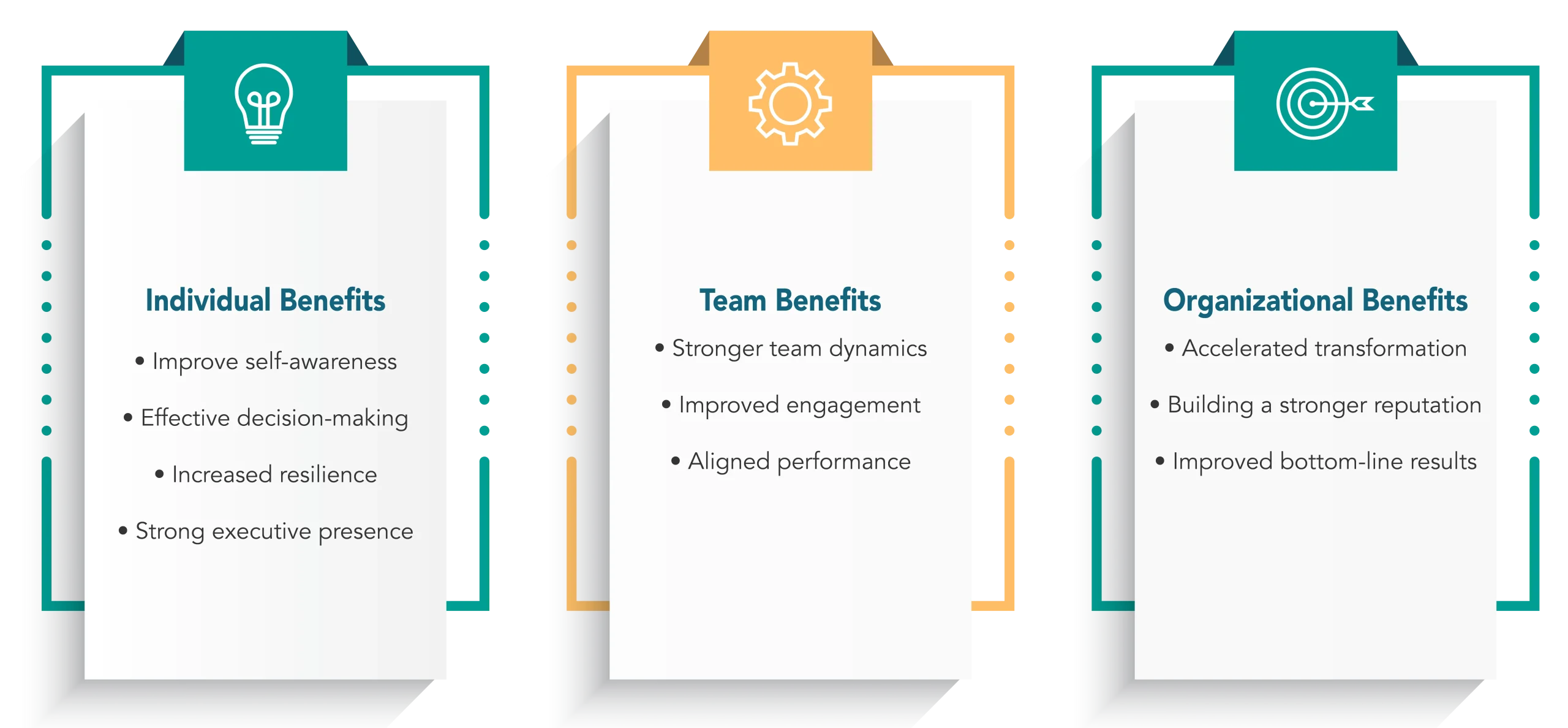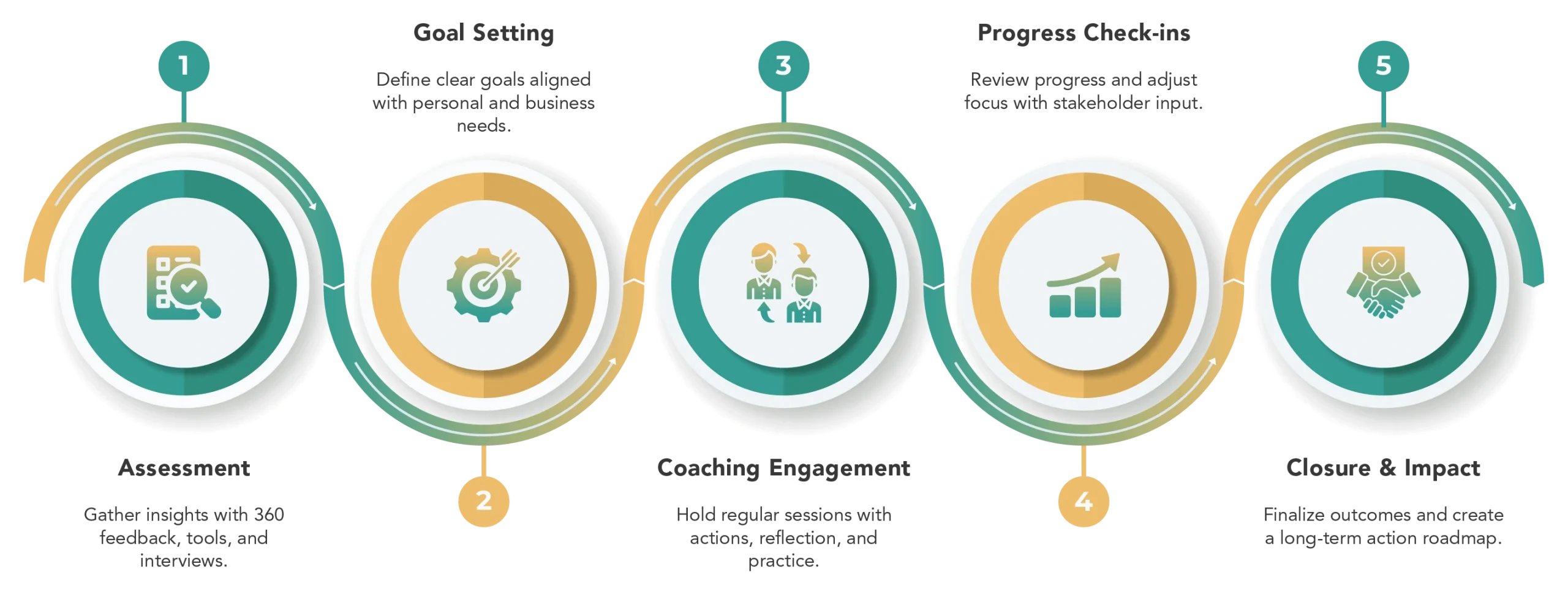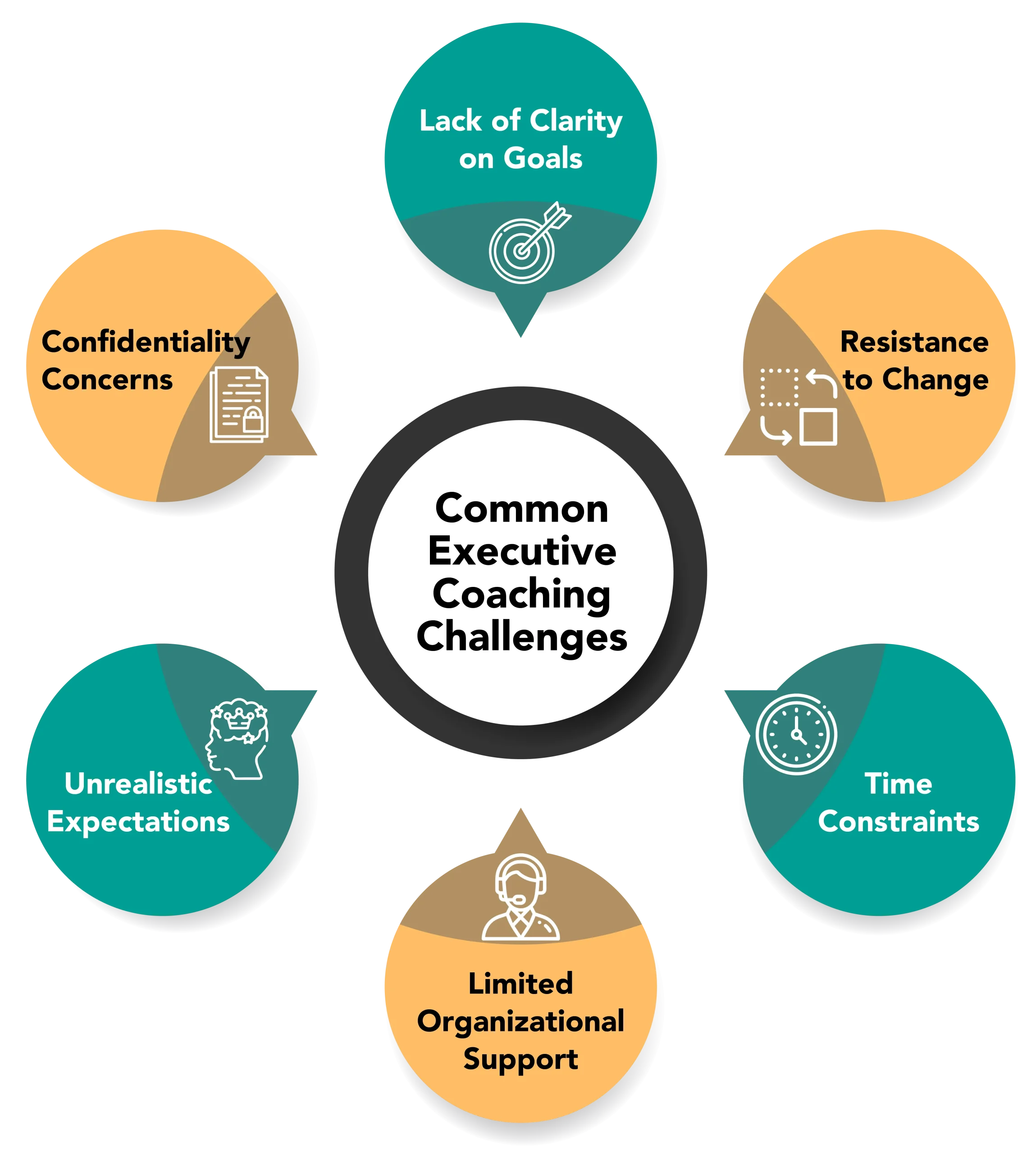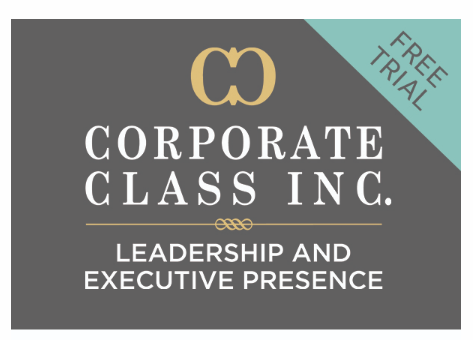Executive coaching is no longer a luxury — it’s a critical tool for sharpening leadership, improving decision-making, and driving meaningful business outcomes. This guide covers what executive coaching is, why it matters, the measurable ROI, and how to choose the right coach. With Corporate Class, leaders gain the clarity, confidence, and skills to navigate change, inspire teams, and deliver exceptional results.
What is Executive Coaching
Executive coaching is a personalized development journey focused on nurturing a leader’s ability to achieve meaningful, sustainable outcomes. It goes beyond skills training; it helps executives sharpen their self-awareness, decision-making, and strategic thinking to navigate complexity and deliver impact.
Unlike traditional management training, executive coaching is individualized, confidential, and focused on results. It typically involves one-on-one sessions between an executive and a professionally trained coach, tailored to the leader’s unique challenges and aspirations. Topics can range from leadership presence, communication, team alignment, to driving organizational transformation.
Why Executive Coaching is Important for Leadership Growth
In today’s volatile and unpredictable business environment, executives face unprecedented demands. It’s no longer enough to rely on past success or technical expertise. Leaders must demonstrate agility, resilience, and the capacity to inspire across diverse teams.
Executive coaching provides a critical advantage by helping leaders:
- Break through blind spots that can derail performance.
- Align personal purpose with organizational goals.
- Accelerate transitions into new or expanded roles.
- Strengthen influence and stakeholder trust.
- Improve emotional intelligence to navigate sensitive interpersonal dynamics.
According to the International Coaching Federation (ICF), 72% of coaching clients report improved communication skills, and over 70% see improved work performance — clear indicators of coaching’s growing strategic value.
Corporate Class specializes in helping leaders break through blind spots, align purpose with organizational goals, and accelerate role transitions—all within a confidential and results-driven framework through leadership and executive presence coaching.
Benefits of Executive Coaching for Leadership Development
The benefits of executive coaching extend across three levels: individual, team, and organization.
Individual Benefits
- Improve self-awareness: Leaders gain an unfiltered view of their behaviours, strengths, and areas for growth.
- Effective decision-making: Coaches help leaders explore options, weigh consequences, and make high-stakes choices with confidence.
- Increased resilience: Coaching builds adaptive capacity to handle stress, setbacks, and change.
- Strong executive presence: Leaders learn how to project gravitas, communicate with clarity, and command the room.
Team Benefits
- Stronger team dynamics: Leaders develop the ability to resolve conflict, encourage psychological safety, and promote accountability.
- Improved engagement: When leaders grow, teams follow — driving higher motivation and retention.
- Aligned performance: Coaching supports leaders in setting clear goals, expectations, and priorities.
Organizational Benefits
- Accelerated transformation: Leaders at their best are catalysts for change across the enterprise.
- Building a stronger reputation: Organizations known for investing in leadership development attract top talent.
- Improved bottom-line results: As leaders sharpen their impact, organizations experience measurable gains in productivity and profitability.
Executive Coaching Process
The executive coaching process is typically structured in distinct phases:
Assessment
- Comprehensive intake, including 360-degree feedback, psychometric tools, and stakeholder interviews.
- Definition of success metrics aligned with business objectives.
Goal Setting
- Establishment of clear, measurable goals tied to both performance and development outcomes.
- Agreement on priorities between the executive, coach, and sponsoring organization.
Coaching Engagement
- Regular coaching sessions (usually biweekly or monthly) over 6 to 12 months.
- A blend of in-session dialogue, real-world application, and reflection exercises.
Progress Check-ins
- Midpoint reviews to assess progress and adjust focus as needed.
- Stakeholder feedback loops to ensure alignment.
Closure and Sustaining Impact
- Final review of progress against goals.
- Development of a sustainability plan to embed new behaviours.
A Global Coaching Study from the ICF highlights a 54% increase in coach practitioners since 2019, illustrating executive coaching’s rapid rise as an essential leadership development.
What is the ROI of Executive Coaching and How to Measure it
The return on investment (ROI) from executive coaching can be impactful, but it must be measured intentionally.
Defining ROI
ROI encompasses both quantitative outcomes (like revenue growth, cost reduction, or productivity gains) and qualitative benefits (like improved engagement, retention, or reputation).
According to the ICF’s Coaching Statistics, organizations report an average return of 7 times their initial coaching investment, with additional gains in employee engagement, productivity, and retention. These gains are often attributed to:
- Faster executive transitions.
- Improved strategic execution.
- Higher-performing teams.
- Reduced turnover of key talent.
Measuring ROI
To capture coaching ROI, organizations should:
- Define success metrics upfront. Align coaching goals with business outcomes.
- Use pre- and post-assessments. Track behavioural and performance changes.
- Collect stakeholder feedback. Assess perceived leadership impact.
- Calculate the financial impact. Where feasible, link outcomes to financial metrics (e.g., sales increases, cost savings).
How to Choose an Executive Coach: A Guide for Leaders
Choosing the right coach is as critical as the coaching itself. At Corporate Class, we match leaders with coaches who know the industry and connect with each leader’s unique style, shaping real impact and driving momentum forward.
Credentials and Background
- Certification from reputable bodies (e.g., ICF): Shows a clear commitment to professional standards and proven methodologies. Corporate Class specializes in ICF-certified leadership development, offering executive presence training and personalized coaching.
- Experience with senior executives across industries: Delivers high-impact support informed by top-level leadership realities.
- Familiarity with your industry or organizational context: Builds trust and alignment.
Coaching Style
- Challenge assumptions: Helps you see blind spots and think beyond familiar patterns.
- Adapts to your leadership style: Flexes between directive and facilitative approaches.
- Balances support with accountability: Encourages while holding leaders responsible for progress.
Track Record
- Proven success with leaders at your level: Shows a track record of driving real change.
- Ability to demonstrate impact: Case examples and metrics that show real results.
Chemistry and Trust
- Strong interpersonal fit: Builds a foundation of trust, safety, and openness.
- Comfort discussing strengths and vulnerabilities: Creates space for genuine discovery and meaningful change.
Executive Coaching Trends Shaping the Future
AI-Powered Coaching Tools
AI platforms are supplementing human coaches by providing real-time insights, behavioural analytics, and progress tracking, boosting scalability and precision. Beyond data, they uncover subtle behavioural patterns and offer micro-learning, making coaching more accessible across leadership levels.
Inclusive Leadership Development
Coaching increasingly focuses on helping leaders foster inclusion, navigate bias, and create workplaces where people feel safe bringing their unique perspectives. Coaches equip leaders to address systemic inequities and build psychologically safe cultures, including inclusion as a core capability.
Well-Being and Mental Fitness
Rising stress and burnout have made well-being central to coaching. Leaders are learning boundary-setting, energy management, and adaptive thinking, reflecting the understanding that leader health shapes organizational health.
Global Expansion
Coaching now spans borders, addressing cultural fluency, virtual leadership, and managing globally dispersed teams. Coaches help leaders navigate diverse expectations, enabling agility in today’s interconnected world.
The global coaching market topped $20 billion in 2024, with executive coaching leading the way as the fastest-growing segment. At Corporate Class, we stay ahead of the curve by bringing fresh ideas into our programs from AI tools to inclusive leadership and well-being strategies, helping leaders meet today’s challenges with confidence.
Common Executive Coaching Challenges and How to Overcome Them
Lack of Clarity on Goals
Without clear objectives, coaching can drift or underdeliver. Investing time upfront to define outcomes ensures focus and maximizes ROI. Leaders should co-create goals with their coach, linking them directly to business imperatives and personal growth areas. Periodic recalibration helps maintain momentum and relevance throughout the engagement.
Resistance to Change
Change is uncomfortable, even for seasoned leaders. Coaches help uncover underlying mindsets or fears that block progress, making change sustainable over the long term. They also equip leaders with small, low-risk experiments to test new behaviours safely. Over time, these incremental wins boost confidence and encourage continued progress.
Time Constraints
Executives have demanding schedules. Effective coaching is woven into daily routines, using real-world challenges as opportunities for development. Micro-coaching moments and on-the-job reflections help integrate insights seamlessly. A coach’s flexibility in adapting to time pressures increases the likelihood of success.
Limited Organizational Support
When organizations fail to invest in coaching, its influence fades away. Early stakeholder engagement builds buy-in and helps strengthen the leader’s progress across the system. Leaders can strengthen support by sharing progress updates with key sponsors, ensuring alignment between personal development and organizational priorities.
Unrealistic Expectations
Some leaders expect immediate, dramatic transformation. Coaches help set realistic timelines and help leaders understand that real change builds over time, through consistent practice. Clear contracting at the setting clear expectations upfront avoids setbacks.
Confidentiality Concerns
Executives may hesitate to open up due to fear of judgment or exposure. Skilled coaches establish strict confidentiality agreements, giving leaders the confidence to speak without holding back. Organizations should maintain that trust by staying mindful of the privacy of coaching conversations, focusing only on agreed-upon progress metrics.
Questions Executives Should Ask Before Starting Coaching
What specific outcomes do I want to achieve?
Clarifying goals ensures coaching is tied to meaningful business and personal results, avoiding vague or unfocused engagement. This sharpens the coaching agenda and enables both the coach and the leader to prioritize what matters most for measurable success.
Am I open to honest feedback and self-reflection?
Coaching only works if leaders are willing to examine their behaviours, challenge assumptions, and take responsibility for growth. Being receptive to feedback, even when uncomfortable, accelerates breakthroughs and fosters authentic leadership.
How will I hold myself accountable between sessions?
Accountability drives momentum; leaders need mechanisms (journaling, metrics, check-ins) to apply insights and sustain progress. Without personal accountability, even the most brilliant coaching insights risk fading without meaningful behavioural change.
How will I involve stakeholders in my development journey?
Engaging key colleagues creates a support system, ensures alignment, and provides valuable feedback to track real-world impact. It also builds credibility, signaling to teams and sponsors that the leader is committed to continuous improvement and transparency.
Why Executive Coaching Matters More Than Ever
As businesses face more change and uncertainty than ever, executive coaching is no longer optional — it is an investment in competitive advantage and leadership longevity.
With Corporate Class, leaders can drive powerful personal and organizational growth, delivering outsized returns for their teams and stakeholders. By understanding the what, why, and how of executive coaching — and by measuring its impact — today’s leaders position themselves to lead with confidence into the future. Reach out to Corporate Class for a confidential conversation on how our coaching programs can accelerate your success.








